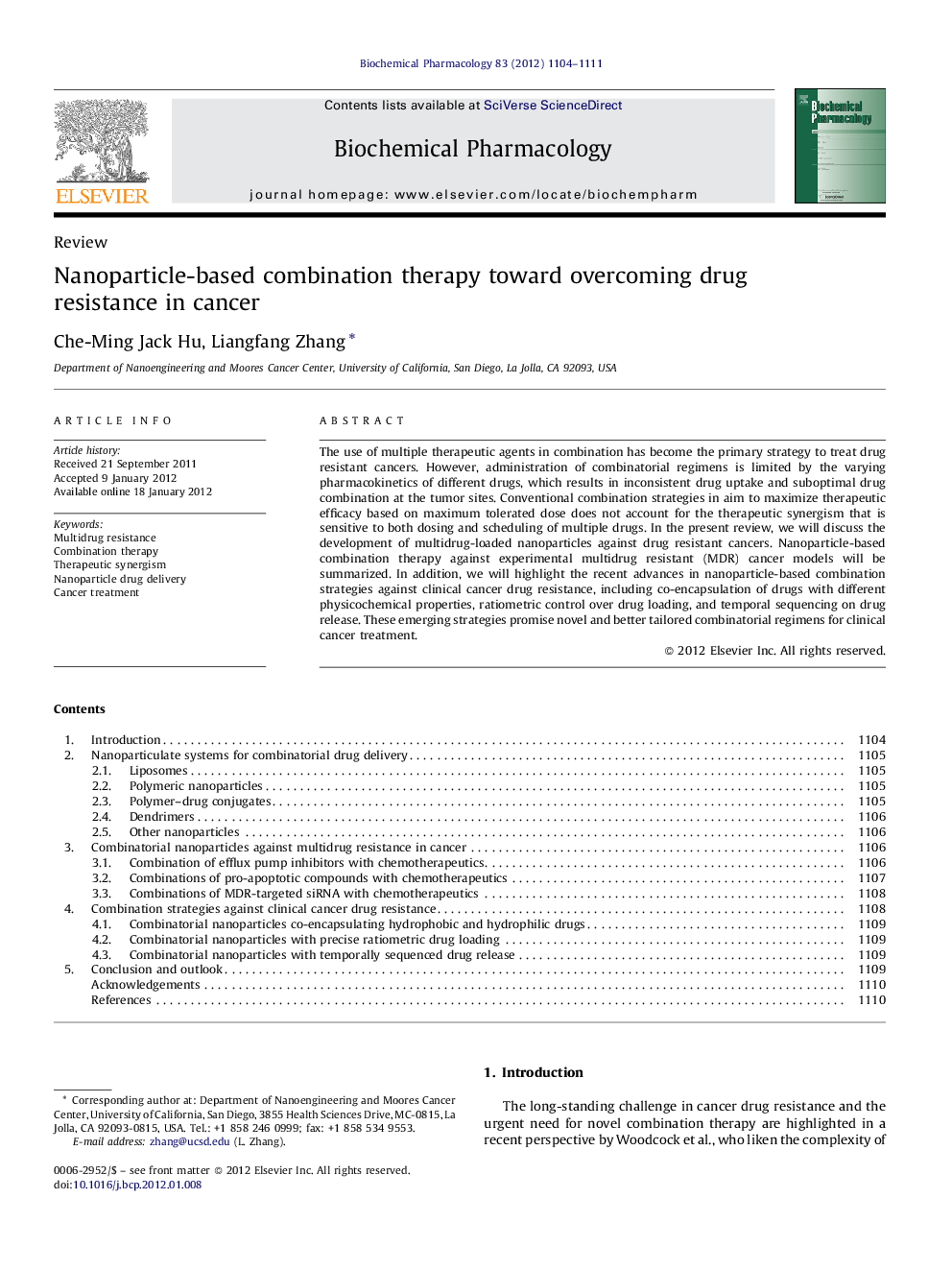| Article ID | Journal | Published Year | Pages | File Type |
|---|---|---|---|---|
| 2512914 | Biochemical Pharmacology | 2012 | 8 Pages |
The use of multiple therapeutic agents in combination has become the primary strategy to treat drug resistant cancers. However, administration of combinatorial regimens is limited by the varying pharmacokinetics of different drugs, which results in inconsistent drug uptake and suboptimal drug combination at the tumor sites. Conventional combination strategies in aim to maximize therapeutic efficacy based on maximum tolerated dose does not account for the therapeutic synergism that is sensitive to both dosing and scheduling of multiple drugs. In the present review, we will discuss the development of multidrug-loaded nanoparticles against drug resistant cancers. Nanoparticle-based combination therapy against experimental multidrug resistant (MDR) cancer models will be summarized. In addition, we will highlight the recent advances in nanoparticle-based combination strategies against clinical cancer drug resistance, including co-encapsulation of drugs with different physicochemical properties, ratiometric control over drug loading, and temporal sequencing on drug release. These emerging strategies promise novel and better tailored combinatorial regimens for clinical cancer treatment.
Graphical abstractFigure optionsDownload full-size imageDownload as PowerPoint slide
